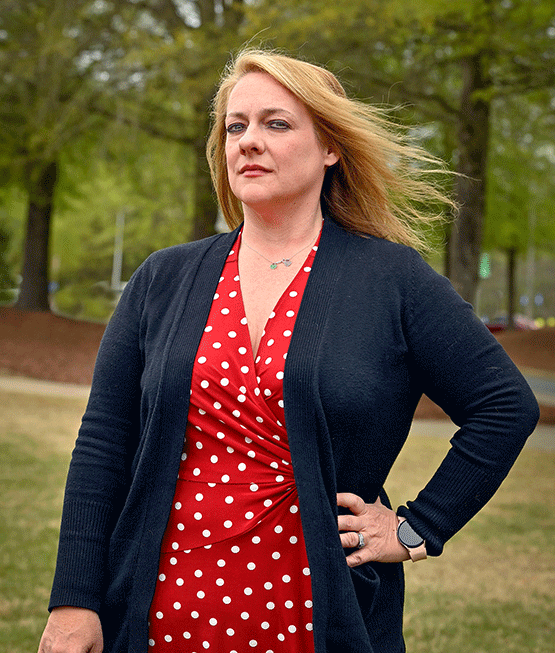news
Georgia Gwinnett College researchers break down the impact scientists play in climate change acceptance

It's been more than 50 years since the first Earth Day, and polling data shows an increasing understanding that humans play a significant role in the earth's changing environment. An overwhelming majority of scientists – 97 percent – agree on anthropogenic global warming. Still, the remaining three percent play an impactful role in keeping the debate about the reality of climate change alive.
Dr. Laura Young, associate professor of political science at Georgia Gwinnett College, wanted to know more about that disparity.
"Who are these three percent of people who are so impactful in the debate among the scientific community?"
Young decided to approach the question pragmatically, using her expertise as a researcher. She enlisted some student assistants and set about collecting data.
"We looked at things like the Montreal Protocol and the Manhattan Declaration, and those documents that experts had signed and were used as evidence to stop climate change mitigation policies," said Young.
Young and her student assistants methodically researched the signers for several years, but she says the project really kicked into gear when Erin Fitz, a political science major from Jackson, Mississippi, came aboard in 2019. Fitz graduated from GGC in 2020 and is now pursuing a doctorate at Colorado State University.
"She was a workhorse," said Young. "It was quite an undertaking because you find all the info but then you have to verify it. You can't just rely on a website. There was a lot of contradictory information about individuals."
Young and Fitz compiled their findings into a paper published in the British Journal of Political Science in 2021. They discovered that the people who make up the "three-percent" have a lot of things in common, both in terms of connections to certain industries and organizations, and in age, education, and even non-educational backgrounds and interests.
Young offered two solutions to mitigate the damaging effects the "three percent" has on the worldwide effort against global warming. First, she said, is doing just what she and Fitz did with their paper: talk about who exactly makes up that three percent.
"We have to share findings about these individuals and their credentials.”
Second, she said, is reframing conversations so that addressing climate change isn’t viewed as a zero-sum game.
"We need to talk about it in economic terms," said Young, “and focus on what can be gained by addressing climate change. Important issues including more jobs, greater energy independence, and a better economy – ideas that are always big talking points but are even more so right now considering current events – are really important.”
